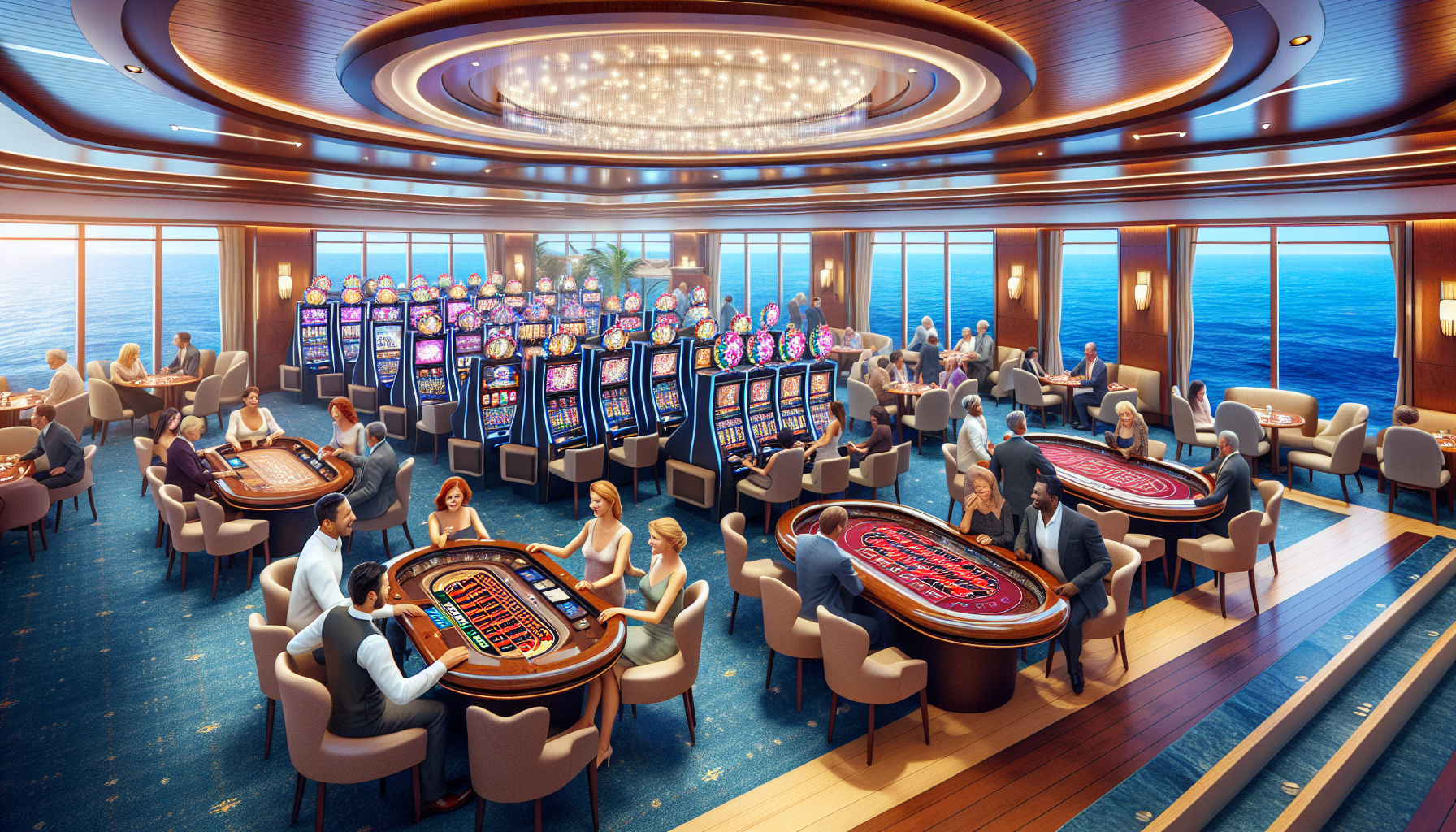Cruise lines, particularly Carnival and Royal Caribbean, are making significant changes to their casino offerings, driving a mixture of anticipation and debate among customers. These revamped casinos are part of a broader strategy to enhance guest experiences and maximize onboard revenue. By adjusting regulations and introducing innovative gaming options, cruise lines aim to capture the interests of seasoned gamblers while attracting new demographics. Let’s delve deeper into the changes and their implications.
Why Cruise Lines are Revamping Their Casinos
The global cruise industry has seen a considerable shift in demographics and consumer preferences over recent years. Travelers are increasingly looking for more than just a traditional vacation. The experience economy pushes cruise companies to diversify their onboard entertainment, and casinos play a pivotal role in this dynamic. As land-based casinos face competition from online gambling, cruise lines seize the opportunity to offer a unique, immersive gaming experience.
The introduction of new policies and games is also a response to the evolving legal landscape surrounding gambling. As more regions relax gambling laws, cruise lines are incentivized to offer modern and dynamic casino environments that adhere to these regulations while satisfying guest expectations.
Key Changes in Casino Policies
- Cashless Transactions: To enhance convenience and security, many cruise lines are adopting cashless payment systems. Guests can link their onboard accounts to casino chips, streamlining the game-playing process and reducing dependency on cash transactions.
- New Gaming Technologies: Embracing technology is crucial for appealing to tech-savvy travelers. Virtual reality and augmented reality are becoming part of the casino experience, offering interactive gaming unlike anything found onshore.
- Regulating Smoking Areas: Health-conscious policies are leading cruise lines to reevaluate casino smoking rules. Designated smoking areas, improved ventilation systems, and non-smoking gaming spaces ensure a comfortable environment for all guests.
- Expanded Loyalty Programs: Building guest loyalty through rewards and benefits is essential for maintaining a competitive edge. Enhanced loyalty programs offer perks like free play hours, discounted cruises, and luxurious suite upgrades.
Public Reaction and Debate
The revamped casino offerings by Royal Caribbean and Carnival have sparked diverse reactions from the cruising community. While many avid gamblers appreciate the modernization and convenience of cashless gaming, others express concerns over the potential for increased gambling related harms. Critics argue that cashless systems could encourage impulsive behavior and obscure spending awareness.
Additionally, the attempt to balance smoking regulations with guest satisfaction has proven challenging. While smoke-free areas are welcomed by non-smokers, some patrons feel that their gambling experience is affected by restricted smoking options.
The Economic Impact
By revamping casino facilities, cruise lines anticipate a positive economic impact. Casino enhancements can contribute to increased onboard spending, higher revenue margins, and improved customer retention rates. The updated casinos not only cater to gaming enthusiasts but also increase the overall appeal of cruises, thus expanding the potential customer base.
Furthermore, the global gambling market, currently valued at billions of dollars, presents fruitful prospects for the cruise industry. Successfully tapping into this lucrative market could grant cruise lines a significant edge over competitors.
Implications for the Future
The cruise industry’s move to revamp casinos is emblematic of broader trends in travel and entertainment, where personalization and technology integration are paramount. As other cruise lines watch the effects of these changes, there will likely be further adaptations to casino operations across the board.
The role of casinos in determining the overall cruise experience can be profound. Whether addressing health concerns, digital transformations, or nuanced regulatory landscapes, these ships must continue evolving to meet diverse customer needs. Future developments could include total virtual gaming environments or collaborations with land-based casinos to create seamless gaming experiences for cruisers.
Conclusion
Carnival and Royal Caribbean’s strategic revamp of their casino offerings showcases an effort to modernize and align with current trends in the gambling and travel industries. While the enhancements are set to provide enriched experiences for guests, they must navigate the fine line between innovation and responsibility.
As these cruise lines usher in the next era of onboard entertainment, only time will tell whether these efforts will result in lasting success. The industry will watch closely, learning from the challenges and triumphs of these pioneering attempts to redefine the cruise casino experience.
For further reading, consider exploring the history and regulations of cruise casino gambling, providing deeper insights into the cultural and economic facets of onboard gaming.

